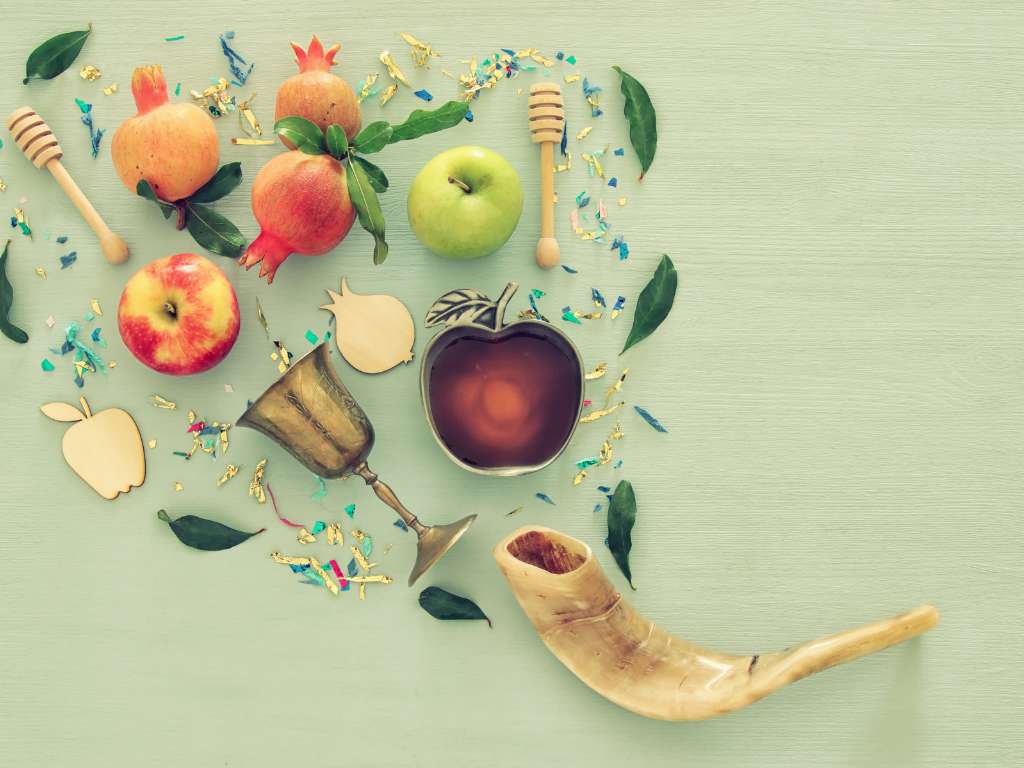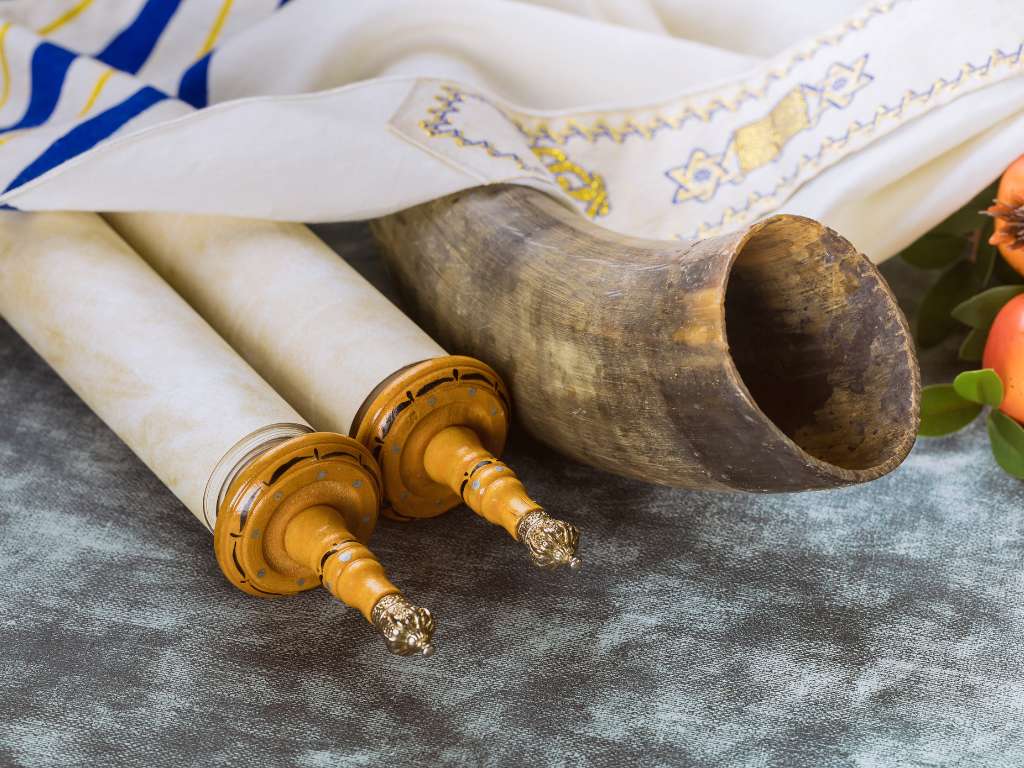
Tishrei Month: Exploring Jewish Traditions and Reflections
As the leaves begin to change colors and autumn sets in, the Jewish community worldwide eagerly anticipates the arrival of Tishrei, the seventh month in the Jewish calendar. This remarkable month is marked by a series of significant holidays that hold deep spiritual and cultural significance. Beyond the festivities and rituals, Tishrei is a time for reflection, unity, and renewal. In this blog post, we'll delve into the beauty of Tishrei, exploring its unique holidays, customs, and the profound reflections they inspire.
Tishrei: A Month of Beginnings and Renewal
Tishrei is often called a month of new beginnings, and it's easy to see why. It kicks off with Rosh Hashanah, the Jewish New Year, where families gather to light candles, recite prayers, and dip apples in honey, symbolizing the hope for a sweet year ahead. But the sweetness of Tishrei extends far beyond the honeyed apples.
Yom Kippur: The Day of Atonement
Ten days after Rosh Hashanah comes Yom Kippur, a day of solemn introspection and fasting. On this sacred day, Jewish communities worldwide come together to seek forgiveness, both from God and from one another. Yom Kippur is a day of reflection on our actions, a day to make amends, and a day to begin anew with a clean slate.
Sukkot: A Festival of Unity and Joy
Following the solemnity of Yom Kippur, Sukkot arrives with its atmosphere of joy and unity. Families build sukkahs, temporary outdoor shelters, and dwell in them for a week. It's a time to reconnect with nature, commemorate the Israelites' desert journey, and celebrate the bountiful harvest season. Sukkot is marked by festive meals, the waving of the Four Species, and an overall sense of happiness and gratitude.
Simchat Torah: Celebrating the Torah
As Sukkot concludes, Simchat Torah begins. This holiday marks the completion of the annual Torah reading cycle, and it's a jubilant celebration of Jewish learning and tradition. Synagogues come alive with joyous dancing, singing, and the unrolling of the Torah scrolls. It's a reminder of the central role the Torah plays in Jewish life and a renewal of the commitment to its study and observance.
Tishrei: Beyond the Holidays
Tishrei isn't just about holidays and customs; it's about deep spiritual reflection and renewal. It's about coming together as a community, seeking forgiveness, and embracing change. The month's fascinating customs, such as the waving of the Four Species during Sukkot or the beating of willow branches on Hoshanah Rabbah, provide unique opportunities for connection, reflection, and devotion.
Tishrei is a month that encapsulates the essence of Jewish spirituality and tradition. It invites individuals and communities to embark on a journey of self-discovery, renewal, and growth. Whether it's the haunting sound of the shofar on Rosh Hashanah, the unity and joy of Sukkot, or the celebration of Torah on Simchat Torah, Tishrei is a time when Jewish communities worldwide come together to celebrate, reflect, and deepen their connection to their faith, history, and traditions.
Tishrei: A Month of Beginnings and Renewal
Tishrei is often called a month of new beginnings, and it's easy to see why. It kicks off with Rosh Hashanah, the Jewish New Year, where families gather to light candles, recite prayers, and dip apples in honey, symbolizing the hope for a sweet year ahead. But the sweetness of Tishrei extends far beyond the honeyed apples.
Yom Kippur: The Day of Atonement
Ten days after Rosh Hashanah comes Yom Kippur, a day of solemn introspection and fasting. On this sacred day, Jewish communities worldwide come together to seek forgiveness, both from God and from one another. Yom Kippur is a day of reflection on our actions, a day to make amends, and a day to begin anew with a clean slate.
Sukkot: A Festival of Unity and Joy
Following the solemnity of Yom Kippur, Sukkot arrives with its atmosphere of joy and unity. Families build sukkahs, temporary outdoor shelters, and dwell in them for a week. It's a time to reconnect with nature, commemorate the Israelites' desert journey, and celebrate the bountiful harvest season. Sukkot is marked by festive meals, the waving of the Four Species, and an overall sense of happiness and gratitude.
Simchat Torah: Celebrating the Torah
As Sukkot concludes, Simchat Torah begins. This holiday marks the completion of the annual Torah reading cycle, and it's a jubilant celebration of Jewish learning and tradition. Synagogues come alive with joyous dancing, singing, and the unrolling of the Torah scrolls. It's a reminder of the central role the Torah plays in Jewish life and a renewal of the commitment to its study and observance.
Tishrei: Beyond the Holidays
Tishrei isn't just about holidays and customs; it's about deep spiritual reflection and renewal. It's about coming together as a community, seeking forgiveness, and embracing change. The month's fascinating customs, such as the waving of the Four Species during Sukkot or the beating of willow branches on Hoshanah Rabbah, provide unique opportunities for connection, reflection, and devotion.
Tishrei is a month that encapsulates the essence of Jewish spirituality and tradition. It invites individuals and communities to embark on a journey of self-discovery, renewal, and growth. Whether it's the haunting sound of the shofar on Rosh Hashanah, the unity and joy of Sukkot, or the celebration of Torah on Simchat Torah, Tishrei is a time when Jewish communities worldwide come together to celebrate, reflect, and deepen their connection to their faith, history, and traditions.


